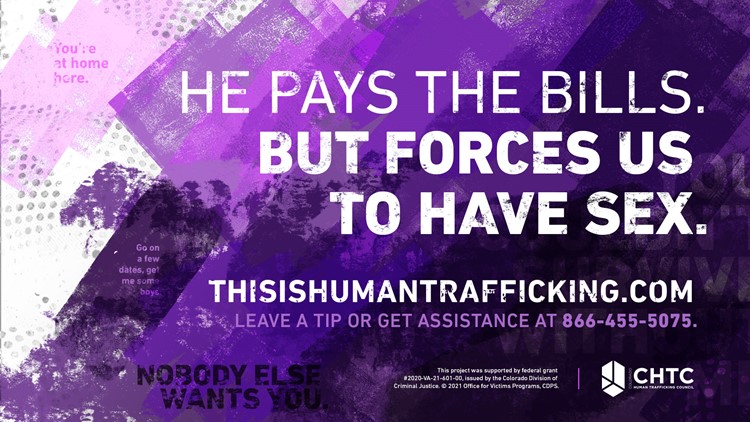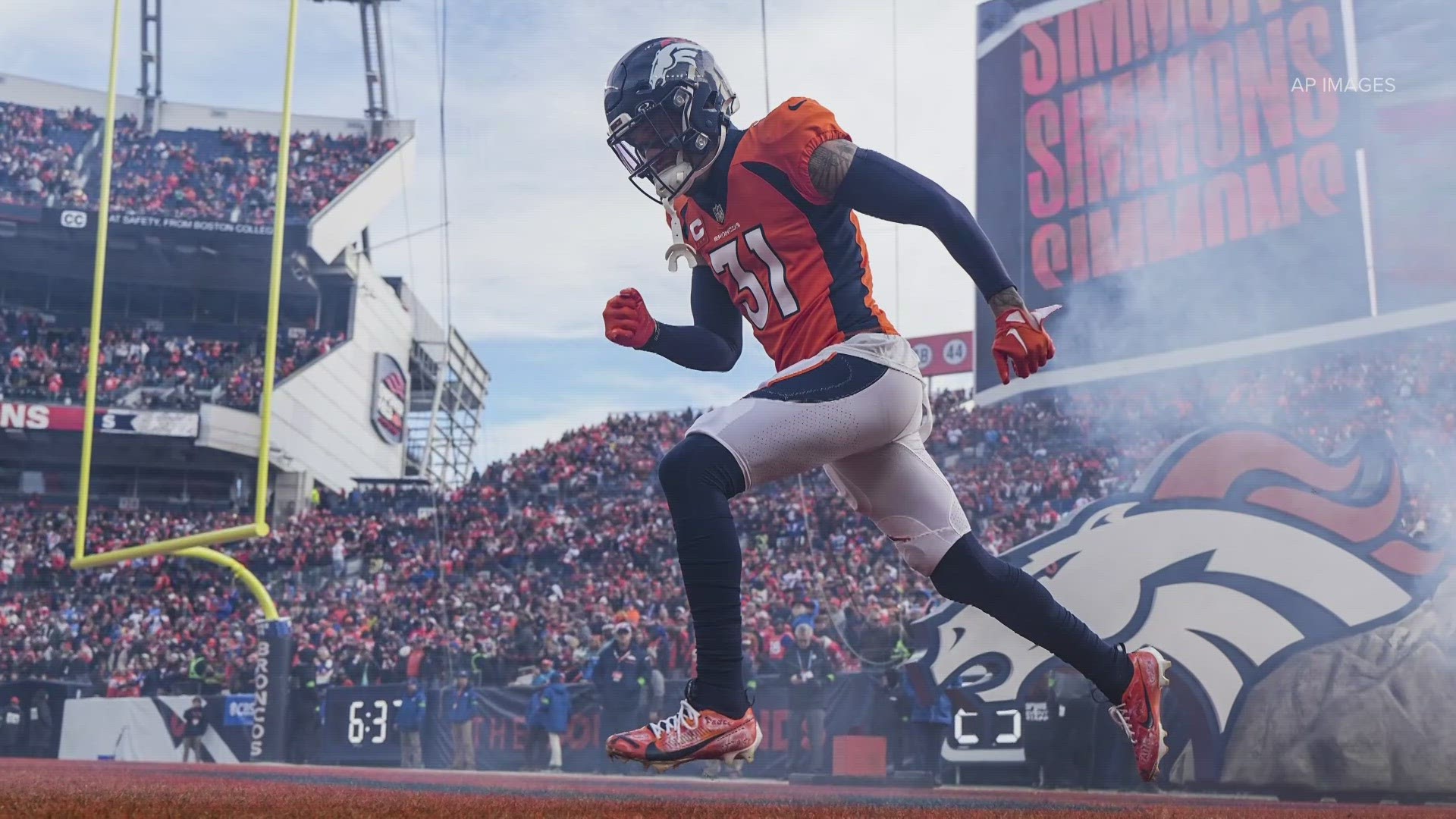COLORADO, USA — PAID FOR BY the Colorado Human Trafficking Council
Luke was looking for a place to call home with people who accepted him. Instead, he was trafficked.
Sex traffickers are operating in Colorado and contrary to the common narrative, they aren’t just preying on women and girls. This is an especially damaging misperception because the built-in bias makes it more difficult to identify when it’s happening to victims who do not identify as female. Sex trafficking isn’t limited to any one gender identity. Men, boys, and LGBTQ+ individuals are less likely to recognize they are being trafficked, and less likely to get help because of the shame they feel and the lack of services available to them. Luke’s lived experience makes it clear: this is a problem that requires increased awareness to bring traffickers to justice.
Luke is a young man who did not see eye-to-eye with his parents on many things, particularly his sexuality and curiosity about sex. When Luke turned 18 he left home and went to live with friends—and someone who turned out to be a sex trafficker. Luke was drawn in by the friends he made, some of whom were “branded” with tattoos of the trafficker's initials. He was curious about their lifestyle, he was having a good time, and he gradually became dependent on the trafficker. The trafficker continued to gain control by using tactics like drug dependency, food, and housing to keep the young men living with him and working for him. The trafficker established a sex-trafficking ring in which he sold the young men for sex, used them for his own gratification, and also used them to recruit other men and boys. Luke felt exploited and hopeless.
Luke’s experience is a composite narrative pulled from real-life events, to protect identities. It is part of a series from The Colorado Human Trafficking Council’s (“The Council”) This Is Human Trafficking statewide outreach campaign. The intention of The Council’s campaign is to raise awareness and to educate the public about all types of human trafficking in Colorado. The goal is, if we all know more, we can identify traffickers, recruiters, and buyers, prosecute them, and bring justice for survivors.
Here are some common misperceptions about sex trafficking and the truths behind them.
- Traffickers sell only girls for sex: Anyone, of any gender identity, can be vulnerable to a trafficker, not just girls and women. In Luke’s experience, he was young and curious and was looking for a home and friends.
- Traffickers lock up their victims so they can’t escape: Sometimes, it’s the lure of a lifestyle, a fraudulent promise, or other psychological means that keep people entrapped, even if they are not literally locked up. For Luke, he was free to come and go as he pleased, even going to bars and clubs. But he was not financially free to live on his own, and he was forced to recruit other men and boys in order to stay in the house.
- Traffickers use physical force as a means of control: Traffickers often use psychological control. Luke was groomed by his trafficker who normalized commercial sex. He was trafficked in exchange for receiving food, housing, and other basic needs. He was coerced into recruiting other men and boys which is a crime the trafficker can hold over him as a threat. Ultimately, the trafficker created an environment of fear, without using physical force. Luke understood he had to comply to survive.
To leave a tip or connect with a trauma-informed advocate to help navigate available services, call Colorado’s Human Trafficking Hotline at 866-455-5075 or text 720-999-9724.
Colorado’s Human Trafficking Hotline and text line has a vast referral network to help people who have experienced, or are experiencing, human trafficking. Hotline advocates can connect people to resources for food assistance, crisis services, mental health, substance use, legal services, and more.
Visit https://thisishumantrafficking.com/luke to learn more about Luke’s experience.
This project was supported by federal grant #2020-VA-21-601-00, issued by the Colorado Division of Criminal Justice. © 2021 Office for Victims Programs, CDPS
About the Council:
Established through legislation in 2014, housed under the Colorado Department of Public Safety, Division of Criminal Justice, Office for Victims Program, the Council coordinates statewide anti-human trafficking efforts for the ultimate purpose of preventing human trafficking in Colorado. Dedicated to the justice and dignity of human trafficking survivors, the 35-person council represents state and non-government agencies, lived experience experts, law enforcement, prosecutors, regional coalitions and task forces, legal services, victim service providers, academia, and faith-based organizations.
The Council is designed to:
● Bring together leadership from community-based and statewide anti-trafficking efforts
● Build and enhance collaboration among communities and counties within the state
● Establish and improve comprehensive services for victims and survivors of human trafficking
● Assist in the successful prosecution of human traffickers
● Help prevent human trafficking in Colorado
THIS ARTICLE INVOLVES COMMERCIAL CONTENT. THE PRODUCTS AND SERVICES FEATURED APPEAR AS PAID ADVERTISING. FOR MORE INFORMATION, EMAIL US.
COLORADO & COMPANY IS A PART OF 9NEWS AND FEATURES COLORADO EVENTS, COMPANIES, BUSINESS PEOPLE AND OTHER GUESTS FROM AROUND THE COUNTRY.



